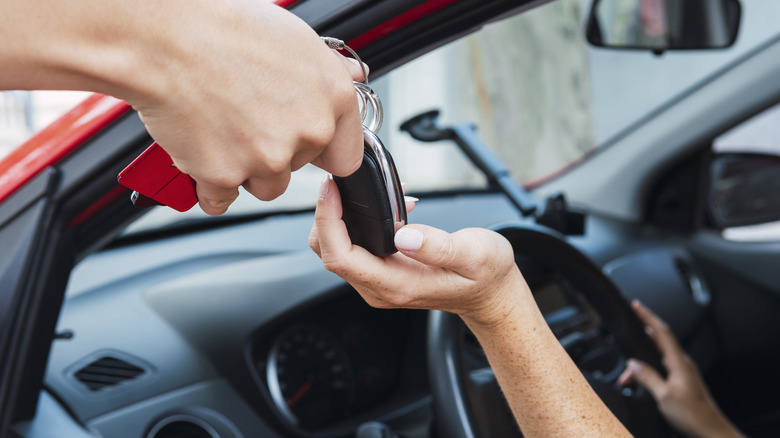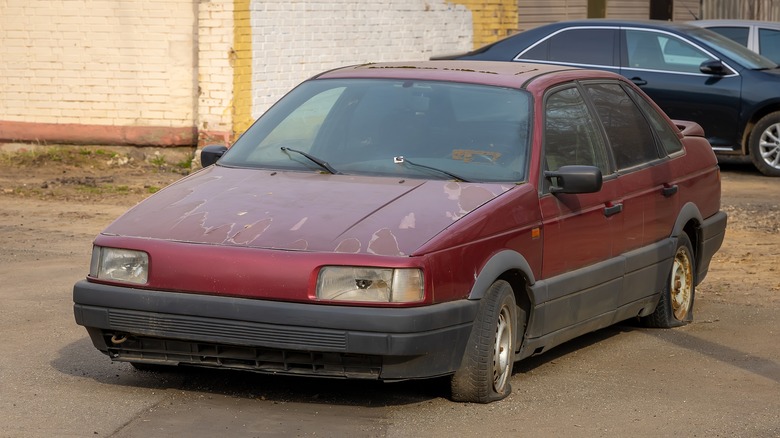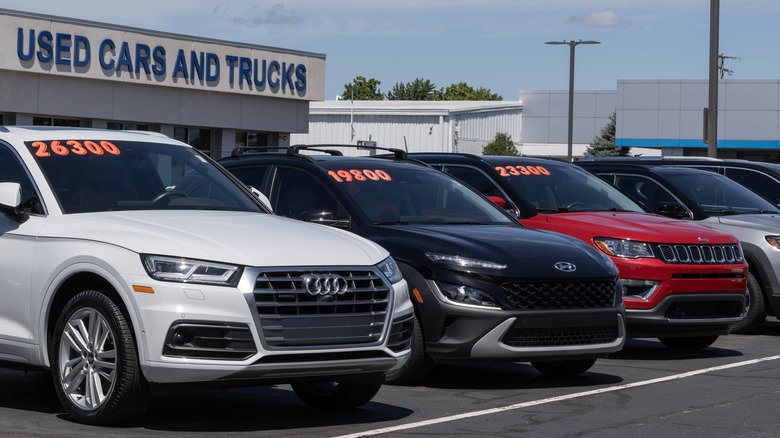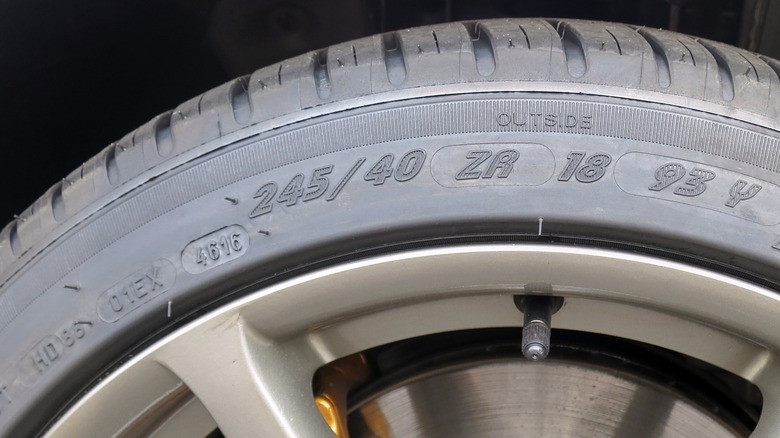Age Vs. Mileage: What's More Important When Buying A Used Car?
I used to joke with friends that I've been going to car shows and swap meets since before I could walk, but it's a joke based in reality. My father used to wake me up at 4 a.m. to take me to auto-parts swap meets on Sundays, pushing me around in a stroller or pulling me around in a wagon while he looked for the best deals on parts before anyone else arrived. We used to buy a printed version of the Auto Trader when it first arrived at 7 Eleven on Tuesday nights, so we could call and haggle over used cars before anyone else saw them on Wednesday morning — that's how I found several cars I owned in high school and college.
I've been in the car world as an enthusiast all my life, watching people buy, sell, and negotiate the prices of used cars in all capacities. Along the way, I've seen people make some very smart buys, but I've also seen some really terrible ones. The conclusion I've come to is that age and mileage for a used car are factors that should be considered, but they aren't the only issues you should be concerned with. Old vehicles and high-mileage vehicles can both be potential minefields, so it's important to also look at things like condition, and maintenance history too. With that in mind, let's consider how to find a good used car.
Narrowing down your search
There are a few simple questions that will help you narrow down your used-car search before it even begins. First: What is the car for? If it's your one-and-only vehicle, used for commuting and daily-driving responsibilities, you'll want something reliable. Something inexpensive to maintain can be a big bonus too. If your job is close to home, with only a few thousand miles of driving a year, the mileage of a used car may be a little bit less concerning. If you're looking for a fun weekend project car, then maybe something with higher mileage won't scare you off.
No matter how new or old a vehicle is, it will need simple services like brakes, tires, and oil changes (for internal combustion engines). But as mileage increases, things you wouldn't think of as typical wear items like the engine and transmission can require major service or replacement. Before buying a used car, look at the service manual (many are available for free online) and see if there are any major upcoming services. Does every fluid need to be flushed at 100,000 miles and the car just ticked over 90k? Keep that in mind when negotiating the price. Also be sure to investigate common problems, checking out ownership forums and recalls for the specific vehicle you're purchasing. Those searches could help you avoid a particular year or trim level that has issues.
Condition is important regardless of age or mileage
How a car is treated by the previous owner (or owners) should be a big factor in your purchasing decision and there are lots of ways to tell whether or not a car has been treated well. For starters, the exterior and interior condition of a vehicle are great canaries in the coal mine. If a vehicle is meticulously cleaned, with an engine bay you could eat off of, with smooth and well-treated paint, and an interior with zero crumbs, those are all good signs.
Owners who keep maintenance records for oil changes, brake pads, tire rotations, and even gas fill-ups are likely to treat the other parts of car ownership with care. Buying a car's history report can help fill in gaps (or help construct a history entirely) where the owner may not have all the information you're looking for. It can also give you information regarding the important services that were (and were not) done over the life of the vehicle. I'm willing to forgive a few extra miles on a vehicle if I can tell that the owner treated the car well, gave it regular service, and didn't neglect basic maintenance.
Age can be an issue, even if a car has low miles
The average American drives almost 14,000 miles per year. So, if you're shopping for a car that's 5 years old, it should have around 70,000 miles on the odometer. If the mileage is much higher or lower, start asking questions — there's no harm in having a mechanic look at the car for a pre-purchase inspection either. It's not a deal-breaker to see a car with low mileage, but knowing that the car sat for a long time can be important. Things like the age and condition of the tires, radiator hoses, and the battery all contribute to my purchasing decisions with used cars.
Tires have a shelf life of about five or six years, and they have a date code printed on the side. Even if there's plenty of tread left, you shouldn't drive on tires that are past their expiration date. The same is true for rubber hoses in the engine bay. Rubber can harden over time, contributing to fragility when hot fluids like coolant pass through them. Fluids age too. Oil and gas are prime candidates for aging. If a car has only been driven a few hundred miles per year, but the oil hasn't been changed in three years, that's a red flag. A car can be old and well treated, or it can be new and driven with reckless disregard – and you don't want either vehicle. Age and mileage are both important, but what's more important is the condition of a vehicle.



